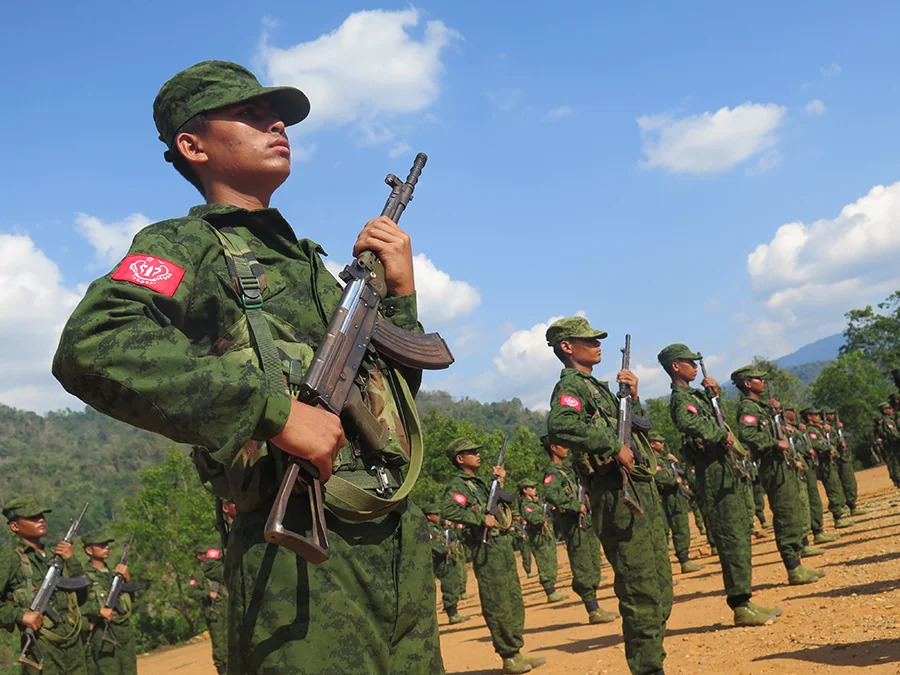There are discussions, yet to be confirmed, that the chief adviser may appoint a special envoy dedicated solely to Myanmar. Such a move would be timely and necessary, as the evolving dynamics of Bangladesh-Myanmar relations, internal security concerns, and the ongoing Rohingya crisis demand a focused and strategic approach. While other nations may be prioritising economic gain and geopolitical influence in the region, Bangladesh has every right to seek solutions—especially as the country most affected by Myanmar’s internal conflicts.
Bangladesh’s support for Rakhine State is central to the region’s stability and future. International observers acknowledge Bangladesh’s strategic significance, given its long, porous border with Rakhine, which provides a unique opportunity to influence developments across the frontier. The Arakan Army (AA), which has established control over large parts of northern Rakhine, conducts cross-border activities with Bangladesh, as reported by the United States Institute of Peace. Given the AA’s rise through a coordinated military and political approach, Bangladesh is in a unique position to foster dialogue and humanitarian cooperation. Active engagement could stabilise Rakhine, open pathways for humanitarian aid, and promote trade through the Teknaf port, laying the groundwork for long-term regional progress.
Recent developments, such as India’s outreach to Myanmar’s armed groups, reflect a shifting regional strategy. According to a Reuters report, India has begun discussions with these groups near its border, with the National Unity Government (NUG) of Myanmar confirming the dialogue, which is scheduled to take place in mid-November. While the specifics remain confidential, this move demonstrates India’s efforts to secure its border and counter China’s influence. Additionally, a recent visit by an Indian member of parliament to the Kaladan Multi-Modal Transit Transport Project underscores India’s commitment to connecting its northeastern states through Myanmar and reducing dependency on traditional routes. India’s proactive engagement highlights the need for Bangladesh to safeguard its own geopolitical interests as the situation in Rakhine evolves.
The humanitarian crisis in Rakhine, exacerbated by the Rohingya exodus, continues to strain Bangladesh, which already shelters over a million refugees in Cox’s Bazar. The instability in AA-controlled areas, coupled with diminishing international aid, has stretched resources further, as noted by DW and the Lowy Institute. Severe shortages of food, shelter, healthcare, and essential supplies in Rakhine have created a critical humanitarian situation. Bangladesh, as a neighbouring country and a primary stakeholder, is now positioned to intervene. While the AA remains a non-state actor, previous diplomatic efforts with Myanmar’s junta have proven largely ineffective. It is now time for Dhaka to consider a more pragmatic, forward-looking approach by engaging the AA from a humanitarian perspective.
The International Crisis Group has urged Bangladesh to initiate direct dialogue with the AA, especially given its growing control over northern Rakhine. While the repatriation of the Rohingya must remain a priority in formal negotiations, forging a humanitarian partnership with the AA could be a strategic step for Bangladesh. And a shift in Bangladesh’s diplomatic posture could pave the way for more active involvement in the region.
Bangladesh should take the lead in convening a multi-stakeholder dialogue that includes the AA, international humanitarian organisations, and regional partners. This dialogue could facilitate the delivery of aid across the border and address the immediate needs of the people in western Rakhine. Additionally, this engagement could set the stage for the repatriation and rehabilitation of the Rohingya in the long term. Moving beyond the covert diplomacy of the past, it is time for Bangladesh to openly assert its role, recognising Rakhine as not only a humanitarian concern but also a potential economic partner.
Cross-border trade, cultural ties, and the functional land ports between Bangladesh and Myanmar are strategic assets that Dhaka must leverage. Bangladesh is well-positioned to be a key supplier of life-saving drugs, food, and essential goods to Rakhine, contributing to both humanitarian relief and infrastructure development. Formalising trade through the Teknaf port would offer multiplied benefits for both regions. Teknaf is crucial for cross-border commerce and has significant potential to drive economic growth. Despite recent security concerns, the port’s prospects remain strong, and its effective utilisation can revitalise trade, maximise economic benefits, and enhance regional connectivity.
Bangladesh’s involvement would not only serve its national interests but also position it as a compassionate and responsible regional actor, providing immediate humanitarian relief while fostering long-term sustainable solutions. International humanitarian organisations based in Cox’s Bazar would benefit from enhanced logistics, enabling them to support aid activities more effectively. Sourcing supplies locally would also boost Bangladesh’s economy, creating a win-win scenario. This strategic engagement would allow Bangladesh to shape Rakhine’s recovery and reconciliation while securing its own geopolitical and economic interests.
The opportunity for Bangladesh is clear: it has the potential to lead and transform the humanitarian landscape in Rakhine. Through dialogue, aid, and strategic engagement, Bangladesh can support vulnerable communities while unlocking new avenues for trade and economic cooperation. The time to act is now—to ensure that humanitarian aid reaches those in need, and to foster peace, stability, and growth for the entire region.
Daily Star

